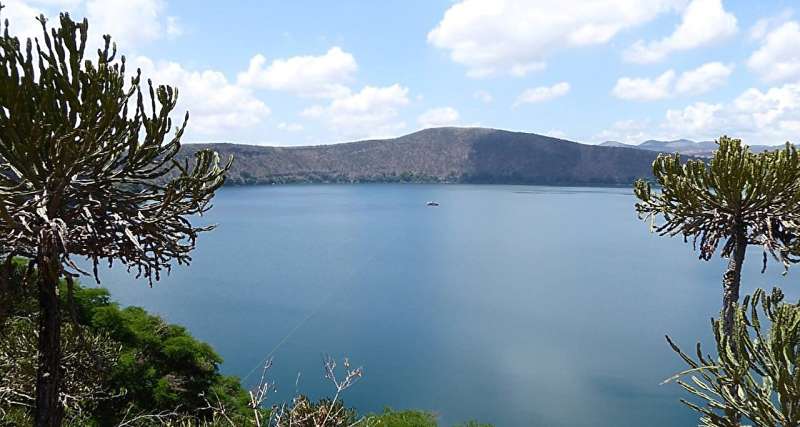This article has been reviewed according to Science X's editorial process and policies. Editors have highlighted the following attributes while ensuring the content's credibility:
fact-checked
peer-reviewed publication
trusted source
proofread
Scientists believe the Horn of Africa reached a drought tipping point 11,700 years ago

New research suggests that the Horn of Africa is likely to become even drier, not wetter in the future as predicted by most climate models.
"Wet gets wetter, dry gets drier." That mantra has been used for decennia to predict how global warming will affect the hydrological cycle in different world regions. But if climate models predict that much of tropical Africa will enjoy a future with wetter weather, then why does it keep getting drier in certain parts of the African tropics, like the Horn of Africa?
An international team of researchers have found a pre-historic climate tipping point that helps explain the disparity between these model predictions and the intensifying drought conditions in the Horn of Africa. Their new study is published in the journal Nature on 10 August.
Moisture equals rainfall minus evaporation
Simply put, two main things make up how wet or dry an environment is: the amount of rainfall, and the amount of water that evaporates from the land and plants. In the tropics, higher temperatures typically bring along wetter weather due to stronger monsoons. At the same time, higher temperatures also cause more evaporation since in warmer air, water evaporates more easily.
And yet, recently parts of the world like the Horn of Africa have seen severe multi-year droughts with rising temperatures. A research team including lead co-authors Allix Baxter (Utrecht University) and Dirk Verschuren (Ghent University) have found an explanation for the disparity between climate model predictions and recent droughts in eastern Africa in the sediments of Lake Chala, located on the Kenya/Tanzania border near Mount Kilimanjaro.
Climate tipping point
"We found that, during the last ice age between 75,000 and 11,700 years ago, higher temperatures in the Horn of Africa did indeed produce a wetter climate," Verschuren explains. "But around 11,700 years ago, when the region's temperature naturally rose by a few degrees, we saw a tipping point in which higher temperatures led to increased drought, and lower temperatures meant wetter conditions."
This fundamental change in the relationship between temperature and moisture in the Horn of Africa, has since locked this region into a dry tropical climate regime, which the researchers expect to continue as temperatures keep rising in the future.
"This finding matches with the increasing number and severity of droughts we now see happening in the Horn of Africa," Baxter illustrates. Quite importantly for this region where most people depend on rain-fed agriculture, the new research suggests that the Horn of Africa is likely to become even drier, not wetter in the future as predicted by most climate models.
"Though it's still debated what the cause is of these recent droughts, our research provides the clue to an underlying mechanism. Our data has revealed certain processes that we hope are better incorporated in the climate models to more accurately predict long-term future climate change in this and other tropical regions."
More information: Allix Baxter, Reversed Holocene temperature–moisture relationship in the Horn of Africa, Nature (2023). DOI: 10.1038/s41586-023-06272-5. www.nature.com/articles/s41586-023-06272-5
Journal information: Nature
Provided by Utrecht University




















